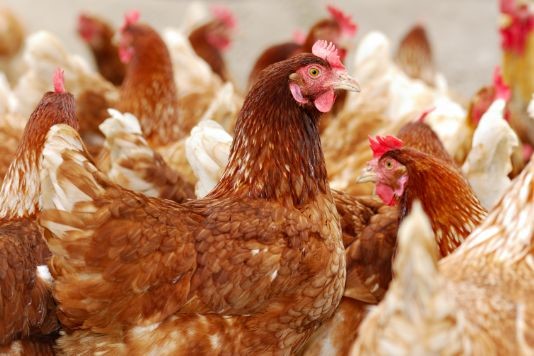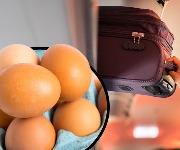Could you give an ex-commercial hen a home?

The British Hen Welfare Trust tell us why it’s a great idea to adopt a hen as a pet, and how to go about it.
If you’re lucky enough to have a sizeable back garden, have you ever considered keeping a few chickens as pets? The British Hen Welfare Trust (BHWT) say it could be a great thing, both for the chicken and for you.
The BHWT is an organisation that encourages people to buy free range eggs. It's currently campaigning for the introduction of a new manufacturing scheme, whereby labels would have to clearly state an origin and production method. It would tell us whether an egg came from a caged hen, or from outside the EU.
It also oversees the rehoming of ex-commercial laying hens, and has found homes for over 400,000 lucky chickens so far.
Why do hens leave their farms?

Once they reach a certain age (around 17 months), chickens are no longer commercially viable for farmers to keep, because their egg production begins to drop off. So they're sent for slaughter unless they can be adopted.
However, the BHWT's Marie Tippet says that hens can still lay fairly well for the purposes of a personal kitchen, laying between “three to five eggs a week each if fed with good quality feed.” She adds that “the charity cannot guarantee the future laying capability of any individual hen,” but is confident that most will continue to lay eggs, which will increase in size over time, although they will decrease in number.
Why keep a chicken as a pet?

Besides the advantage of having eggs laid freshly just for you, chickens are intelligent, social animals who love to interact with their owners. Marie says that they have “a personality and intelligence quite like no other pet". Given they are often referred to as ‘cats and dogs with feathers’, she says they "are ideally suited to family life”.
Commercially laying hens are bred for docility. So you’ll find them “gentle, endearing, inquisitive and VERY friendly, eating out of your hand and following you around the garden and pecking at your shoe laces in only a few days,” says Marie.
What do I need to keep them?

Aside from land (ie a large garden) for the chickens to forage on during the day, you’ll need somewhere for them to sleep which will also keep them safe from predators. You can buy or convert a shed, or buy a purpose-built coop. Either way, you’ll probably want to take a look at a few options before deciding.
Both the BHWT and Henkeeping.co.uk have handy guides on how to keep your birds healthy. Note that it’s recommended to have an enclosure suitable to house more hens than you actually have. This gives the hens a bit more space to roam, which will prevent them from getting stressed.
Foxes, badgers, and even dogs and cats pose potential threats to chickens. If you have a dog or cat, it’s advisable to arrange and supervise meetings between them to get them used to one another. Once they get used to each other's presence, they're likely to be comfortable together and larger animals won't see the chickens as food. But do keep an eye on their relationship!
You should also be aware of potential parasites like worms and external pests such as red mites. It's important that you take steps to regularly control and prevent these issues. However, as ex-commercial layers, they have been vaccinated against most common diseases as chicks, which will help to protect your flock. Handle them regularly, get to know them, and you’ll be able to tell if something’s wrong.
Since you’re feeding your own chooks, you’ll know exactly what goes into the egg production cycle. Cheap food could result in lower egg production, so it’s worth paying more for your own sake as well as for the hens. Feeding them good quality corn will result in rich-tasting eggs.
I want chickens!
 If you think you might be interested in keeping your own, get in touch with the BHWT.
If you think you might be interested in keeping your own, get in touch with the BHWT.
Before you apply though, do read their advice on caring for the new member of the family and their FAQ on adopting thoroughly.
You might be interested in:
Are you sure you only eat free range eggs?
Most Recent
Comments
Be the first to comment
Do you want to comment on this article? You need to be signed in for this feature








